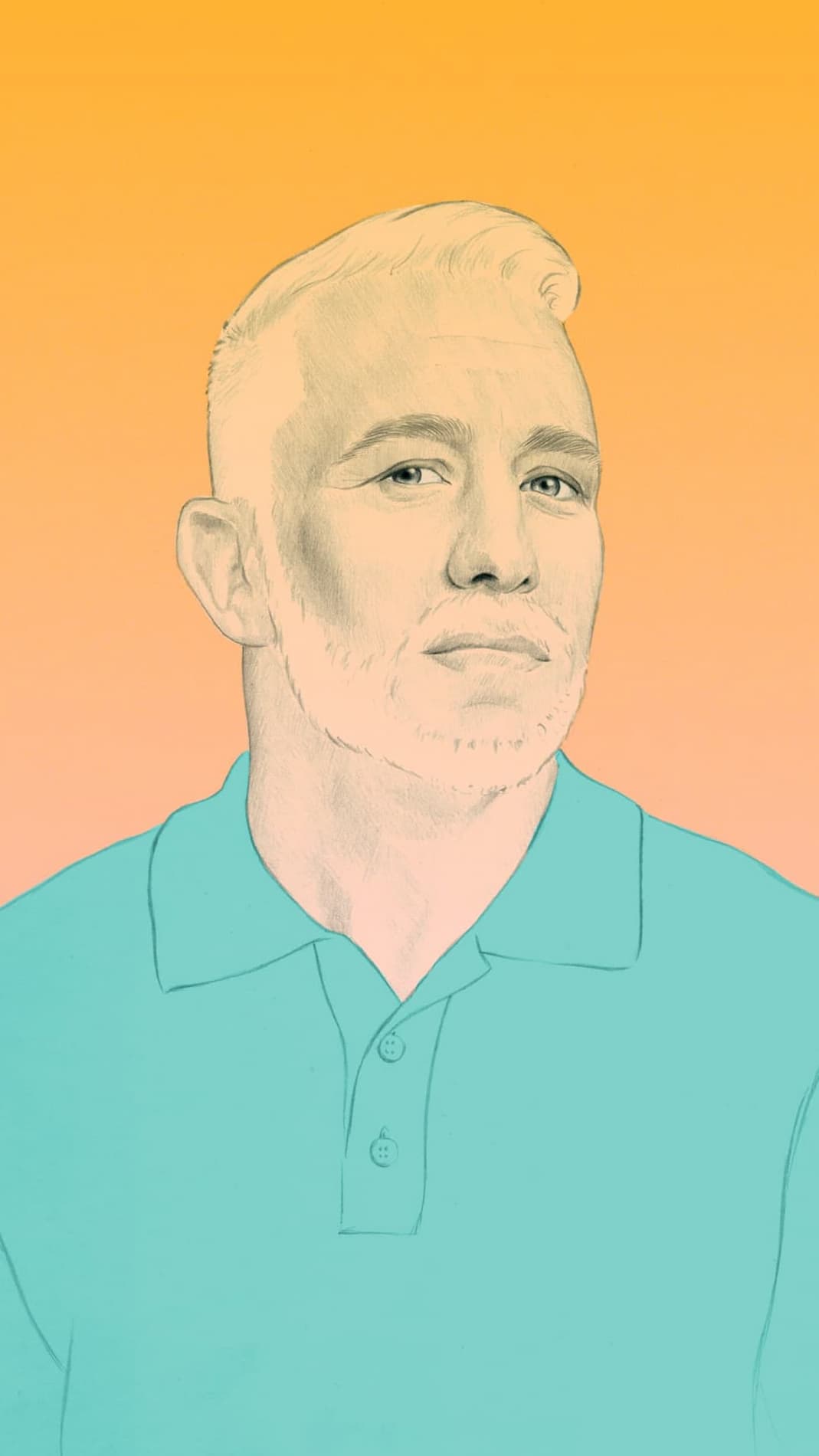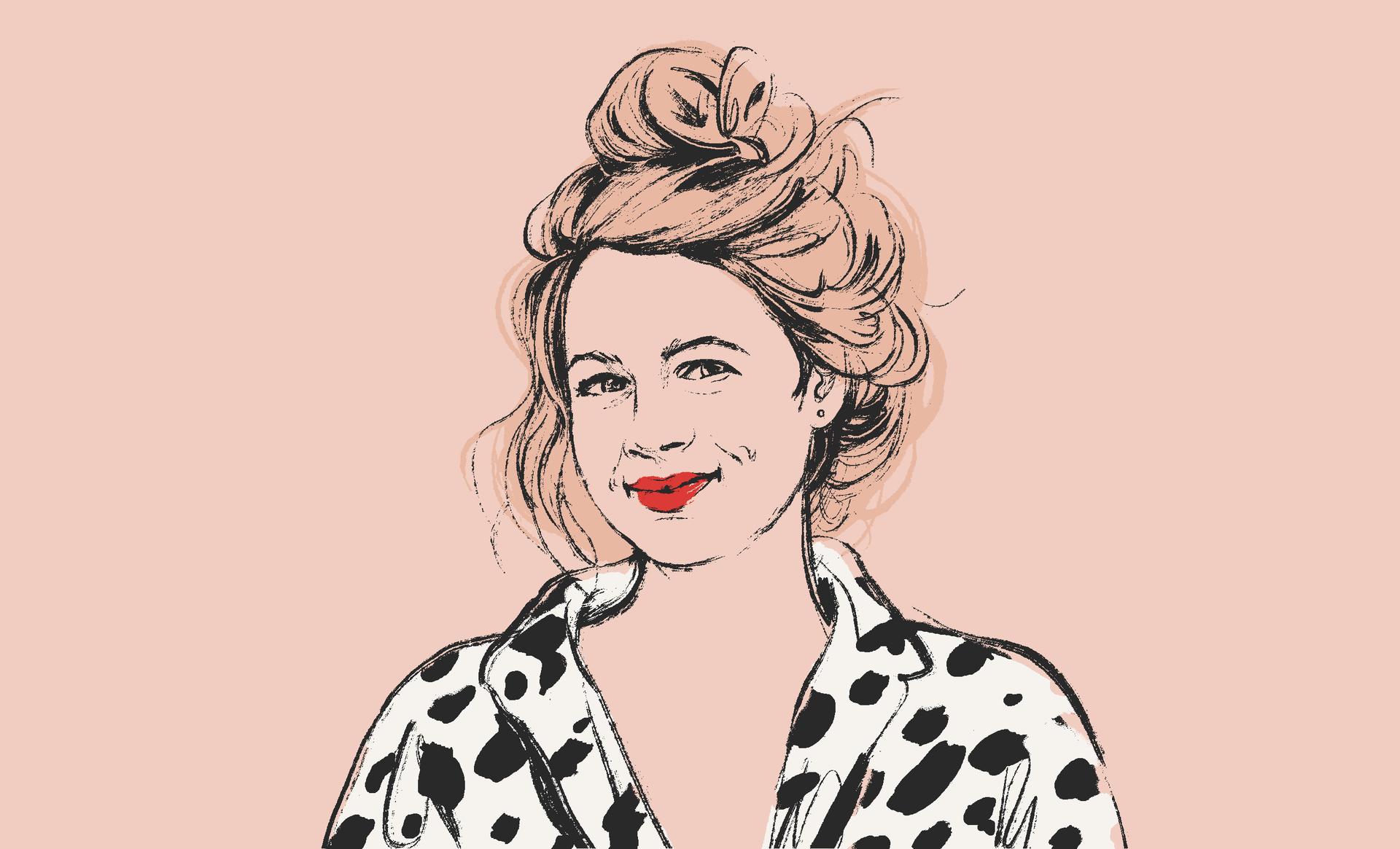
Money Diaries
The UFC Won’t Pay You Fairly Unless You Make Them
And other life lessons from Georges St-Pierre, Montreal’s three-time UFC champion turned Marvel Universe actor.
Wealthsimple makes powerful financial tools to help you grow and manage your money. Learn more
In mixed martial arts (MMA), we don’t have an association to protect fighters like players in basketball, hockey or baseball do. There is no union in the fight game. So, for us in MMA, negotiations can become like a chess game. It was in 2008, two fights after I’d become UFC world champion, and my contract with the UFC was going to be up. Other organizations wanted to have me as their poster boy and UFC knew that. So, like a poker bluff, we said, “We don’t want to re-sign before the fight — we want to just finish the contract.” We took a big risk. Because it’s like a stock market. Your stock might go up if you’re successful, but it can also go down if you lose. But that’s what we decided to do. I always believed in myself, so we took the big risk.
From the beginning, one of the biggest gifts my parents gave me was not paying for things. If I wanted to have candy or anything, it was coming from my money. I had to work for it. I come from the countryside, and my relatives had a farm then, so when I was about ten, I started working with my cousin on the farm every summer. It was very, very hard manual labour — shovelling animal poo, baling hay, picking strawberries in the field. At the time in Canada, they’d hire young people to do that job, but they also hired people from Mexico. So, it just shows you how hard it is because most Canadians did not want to do this job. It didn’t pay well — my first wage was $3.00 an hour — and it’s very hard labour. I’ve never been afraid of work.
I started learning karate because I was getting picked on in the schoolyard. So instead of focusing on what the teacher was explaining in front of the class, I was focusing on how I was going to get out of the classroom, get to my locker, pick up my books and reach the bus before I got beat up by the bullies. I truly believe that experience that I had when I was young made me much stronger to face the mental warfare that I had to face later in my life.
When I was a teenager, I remember seeing Royce Gracie win the first UFC. Mixed martial arts was a very controversial sport at the time. People saw it as barbaric, but I was drawn to it. I saw it as a pure sport and I always knew that one day it would become very popular. I decided I wanted to be a champion. At that point, I was already a black belt in karate. Everybody thought I was crazy. They told me, “This thing’s going nowhere and you’re going to get hurt.” But I knew it would become very popular and even though only a handful of fighters were making money, I always believed in the sport. I didn’t have any evidence of it, but I saw every time it was on TV, everybody turned their heads. I believe fighting is something that everybody can be pushed to do. I can take even the nicest person and put him in a situation where he’s going to have no choice to fight, either to survive or to protect someone that he loves.
When I first started fighting professionally, I didn’t make a lot of money. I was 19 when I had my first professional fight in Montreal with an organization called TKO. I earned $1,300. And then after a few fights, I got recruited by the UFC, which was the most prestigious organization in the world. It was like making the NBA. But the money was still terrible. For my first UFC fight, I got $3,000 to show and $3,000 to win.
At the same time, I started studying in university. I worked as a garbage man and a bouncer at nightclubs on weekends so I could pay for my books and tuition. I was only in university because my parents had always wanted me to be educated. Because I was undefeated in the UFC, I got a title shot. That’s when fighting became a real thing for me. So, I had a talk with my parents and said, “Listen, I’m going to focus exclusively on fighting for the next six months because I have a title shot. Are you okay with me leaving school? If it doesn’t work, I can always go back to school next year.” And they said, "Yeah, go for it. You live only once. Try to make it big. If it works, it works.”
For my first fight for the world title, I got paid $9,000 to show and $9,000 to win, but I lost to Matt Hughes. So, I only made $9,000 for my first world title fight. I was very underpaid. Then after that, I rebounded with a few victories and I got another shot at the world title. After I won the world title at 25, I had my revenge.
A lot of athletes, when they start to make money, they spend their money on jewelry and bling, flashy stuff to look good. I did not do that. I spent money on myself to become better at what I do. I started travelling a lot, but not for pleasure. I went to Thailand because I wanted to train with the best Muay Thai fighter in the world. I went to Brazil and trained with the best Brazilian Jiu-Jitsu fighter in the world. I went to LA, trained with Freddie Roach, who I consider the best boxing coach in the world. I bought an ice bath because it helped me recuperate. You invest in yourself like a stock and it will give you a return in exchange. It will amplify your performance. If I would have burned that money on jewelry, the sport would have caught up with me and I would never have had the career that I had. I knew my career was going to be too short for me to spend my money on luxury.
So after I won the championship in 2008, I took a big gamble on myself and told UFC I was not going to re-sign with them. And then, the day before my fight with Jon Fitch, the UFC came back with a big, crazy contract because they didn’t want me to become a free agent. You read I made $400,000 a match? No. I made a lot more than that. A lot more than that. Millions. When I was at the peak of my career, I was making many millions of dollars. Because you not only get the money to show and the money to win, but you also have a percentage of the gate and pay-per-view buys — the gate and the pay-per-views are where the real money is. That’s how fighters make their money. But you need to have the power to negotiate those terms. I was very successful so I could demand that extra money.
I left the UFC in 2013 because I was disgusted with the performance-enhancing drug problem in my sport. I saw the organization sometimes wanted to protect their athletes instead of going for the truth. I only came back when the UFC hired an organization called USADA to test their athletes. And as I expected, a lot of their champions failed their drug tests. So, when I saw that, I was like, “Finally, the corruption is over.” And I was happy to come back in 2016. But I didn’t want to come back to fight for the same title. I wanted to make history and do something different. So, I challenged Michael Bisping, the champion in a heavier weight class.
I came back mostly for my own sense of accomplishment, but of course, the money was there. There’s a lot of people buried in the desert for much less than what I made for that fight, my friend. For the fight with Michael Bisping, with the pay-per-views, the sponsorship and all that, I made about $10 million. Then in 2019, I got out. I’m very lucky and very privileged that I finished on top. The reality is most fighters finish broke and broken. They hang there too long. They get brain damage. They go broke. I’m very healthy and I’m wealthy. It’s very rare to find someone that hangs up his gloves and finishes on top like this.
While I was still focused on being a mixed martial arts artist, I did one movie, “Kickboxer: Vengeance,” with Jean-Claude Van Damme. He and Steven Seagal had always been my idols but I wasn’t ready to act back then. It’s been two years since I retired and now acting is my full-time job. Every week, I have English classes, audition classes, theatre classes, and camera classes. And when I train for acting, like I did in professional fighting, I always try to get out of my comfort zone. I’ve trained in drama, in comedy, in romance — I’m not always training to be an action figure.
There are a lot of similarities with fighting and acting. I was acting all my life. Before every fight, I was terrified. I was extremely uncomfortable. But I’d put on a mask so when you see me walking to the ring; you’d never think that I’m scared because I look like someone who’s confident, excited, and happy to be there. But deep down inside, it was all different.
To tell you the truth, I don’t act for the money. I have enough money now to live for the rest of my life and to take care of all my loved ones. There’s no problem with that. And I’m aware that in acting, I have to start as a white belt, so to speak. But I had a small role in “Captain America: The Winter Soldier” and then in “The Falcon and The Winter Soldier.” And this was a small role, so of course the money won’t be the same as when I fought for the world title. But I’m ready to take on bigger things.
Andrew Goldman has been writing for over 20 years and investing for the past 10 years. He currently hosts ["The Originals"](https://podcasts.apple.com/us/podcast/the-originals/id1439490906 ""The Originals"") podcast and writes about personal finance and investing for Wealthsimple. Andrew's past work has been published in The New York Times Magazine, Bloomberg Businessweek, New York Magazine and Wired. He and his wife Robin live in Westport, Connecticut with their two boys and a Bedlington terrier.





